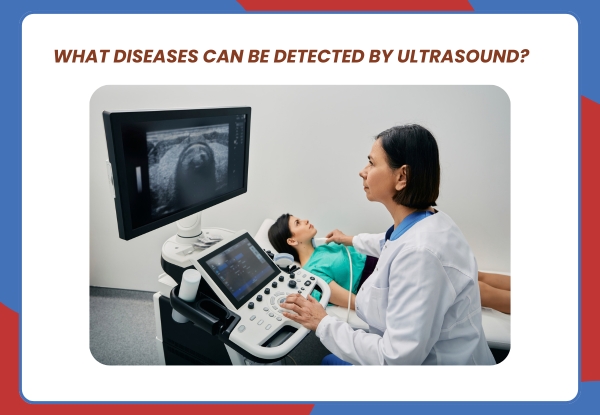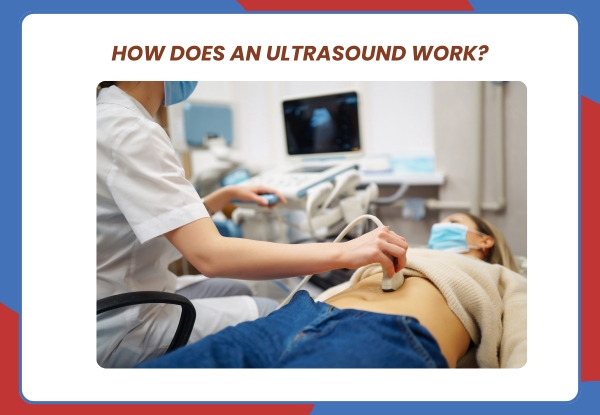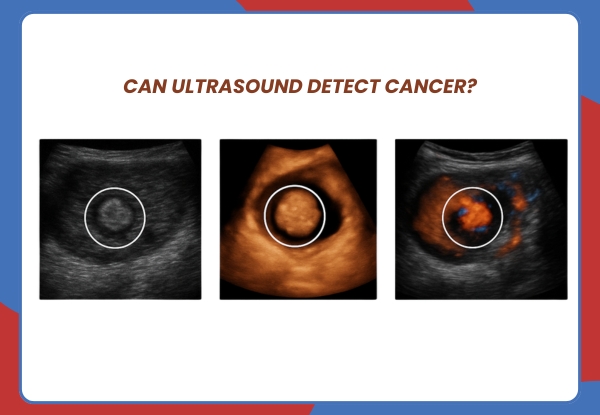
If you’ve ever wondered what diseases can be detected by ultrasound?, you’re not alone. Whether it’s a quick scan during pregnancy or a more detailed look at an organ that’s causing discomfort, ultrasound tests are one of the most commonly used tools in modern healthcare. They help doctors see inside your body without making a single cut.
Ultrasound scans are not only painless but also provide real-time images, making it easier for doctors to spot concerns early. And if you’re looking for a reliable ultrasound scan near me, centres like Midas care clinic and the Best diagnostic center in Mumbai offer accessible services for accurate diagnosis.
How does an ultrasound work?

An ultrasound test uses sound waves to create images of the organs inside your body. A small handheld device sends sound pulses into your skin. These waves bounce off tissues, and the echoes are converted into pictures by a connected screen. So if you’re wondering, how does an ultrasound work?, it’s basically sound turned into sight.
There’s no radiation involved, which makes it safe for regular use, even in pregnancy. Most scans are done externally, although some, like transvaginal or transrectal ultrasounds, involve internal views for better clarity.
What can an ultrasound detect?
Now to the question you came here for: what can an ultrasound detect? Quite a lot, actually. This scan is often used as a first-line investigation when someone experiences pain, swelling, or abnormal blood tests. Let’s break down the kind of issues it helps catch.
Diseases detected by ultrasound
Pregnancy and women’s health conditions
If you’re pregnant or dealing with gynaecological issues, chances are your doctor has recommended an ultrasound test. Here’s why:
- Foetal monitoring: Helps track baby growth, position, and heartbeat
- Ectopic pregnancy: Detects abnormal implantation
- Uterine fibroids: Seen as solid growths in the womb
- Polycystic ovarian syndrome (PCOS): Reveals cysts in the ovaries
- Ovarian cysts or tumours: Differentiates fluid-filled sacs from solid masses
Clinics like Midas care clinic offer early scans for women facing symptoms such as pelvic pain or irregular periods. If you’re searching for an ultrasound scan near me, it helps to pick centres that specialise in women’s health.
Abdominal and digestive issues
Ultrasound is often the first choice for belly-related problems. These scans are quick and often tell a lot more than you’d expect.
- Gallstones or bile duct blockage
- Liver enlargement or fatty liver
- Abdominal tumours or cysts
- Kidney stones or kidney swelling
- Appendicitis, especially in children
If you’re scheduling an ultrasound scan in Mumbai, check whether the centre offers abdominal imaging with colour Doppler if vascular issues are suspected. Many prefer the Best diagnostic center in Mumbai for clear reports and shorter waiting times.
Heart and blood vessel problems
When it comes to the heart, the scan used is called an echocardiogram. It’s a type of ultrasound specifically designed to visualise the heart’s structure and function.
- Valve defects: Like leakage or narrowing
- Fluid around the heart: Called pericardial effusion
- Enlarged heart chambers
- Congenital defects in newborns
- Poor blood flow or clots in veins (deep vein thrombosis)
Doctors use it regularly for patients with breathlessness, irregular heartbeat, or chest discomfort.
Can ultrasound detect cancer?

This is a question many people ask, and rightly so: can ultrasound detect cancer? The honest answer is yes and no.
Ultrasound can spot abnormal masses in areas like the breast, liver, testicles, or thyroid. What it does best is help doctors decide whether a lump looks suspicious. However, it cannot confirm cancer. That usually needs a biopsy or further imaging like MRI or CT.
So yes, it’s an important tool in cancer detection, but it doesn’t give you all the answers in one go.
Joints, muscles, and soft tissues
If you’ve twisted your knee or shoulder and the pain lingers, ultrasound might be used to check what’s wrong. It can be surprisingly useful for:
- Muscle or ligament tears
- Swelling inside joints
- Tendon injuries, especially in the shoulder or ankle
- Abscesses or collections of fluid
- Nerve compression
Unlike X-rays, ultrasound lets you move during the test, so doctors can see how things behave in real time.
Common Myths About Ultrasound Tests
There’s a lot of confusion around ultrasound scans, especially if it’s your first time. Let’s clear up a few things that people often get wrong.
Ultrasound is only for pregnant women.
Not true. While it’s widely used in pregnancy, doctors rely on ultrasound for many other health concerns abdominal pain, muscle injuries, heart conditions, and more. If it involves soft tissue or internal organs, ultrasound often comes into play.
It’s the same as an X-ray or CT scan.
Actually, it works very differently. Ultrasound uses sound waves, not radiation. That’s why it’s preferred when safety is a concern, like during pregnancy or for frequent imaging.
You need to be seriously unwell to get one.
Ultrasound isn’t just for major conditions. It’s often used as a first step when symptoms are mild or unclear. Think of it as a fast and safe way to understand what’s happening inside your body.
What are the different kinds of ultrasounds?

There’s no one-size-fits-all. The type of scan depends on what part of the body is being looked at:
- Transabdominal ultrasound: Common for pregnancy or abdominal organs
- Transvaginal ultrasound: Provides a closer view of the uterus and ovaries
- Doppler ultrasound: Measures blood flow and can detect clots or blockages
- 3D and 4D scans: Often used during pregnancy for clearer baby images
Each type plays a different role, and your doctor will choose the one best suited to your symptoms.
Frequently Asked Questions
Q1. Can ultrasound detect cancer or just lumps?
Answer: It can show lumps or abnormal growths but can’t confirm cancer. Further tests like biopsy are needed.
Q2. Is ultrasound safe during pregnancy?
Answer: Yes, it uses sound waves, not radiation, so it’s considered completely safe for both mother and baby.
Q3. How accurate is an ultrasound test for liver problems?
Answer: It’s very effective for detecting liver size, fat buildup, or lesions, especially when combined with blood tests.
Q4. Does ultrasound hurt? What should I expect?
Answer: No, it’s painless. You might feel slight pressure from the probe, but it’s over within minutes.
Q5. Can I eat before an abdominal ultrasound?
Answer: Usually no. You may be asked to fast for 6 to 8 hours so that gas or food doesn’t block the view.
Q6. Can ultrasound detect kidney stones better than X-ray?
Answer: Yes, especially for smaller stones or when you want to avoid radiation, ultrasound is a preferred option.
Q7. How often should pregnant women get ultrasound scans?
Answer: Typically once in each trimester, but it may vary based on health conditions or doctor’s advice.
Conclusion
Ultrasound has become one of the most widely trusted diagnostic tools because it’s quick, non-invasive and widely available. Whether you’re a healthcare professional looking for early detection or a patient concerned about unusual symptoms, knowing what diseases can be detected by ultrasound can help you take timely action.
For those looking for an ultrasound scan near me, finding a centre with experienced sonographers and quality equipment makes all the difference. Clinics like Midas care clinic and other top-rated centres recognised as the Best diagnostic center in Mumbai offer services that combine speed with precision.
Always speak with your doctor if you’re unsure about your scan results or symptoms. The goal is early detection, informed decisions, and better health outcomes.

